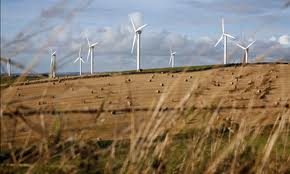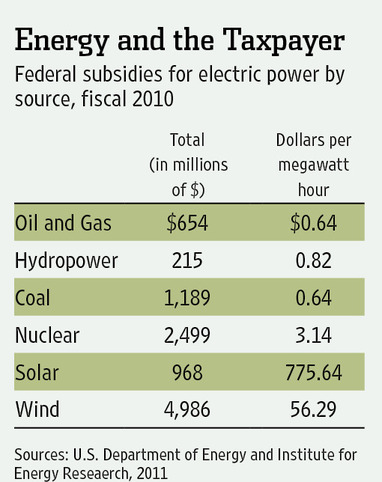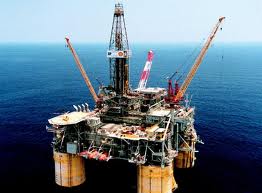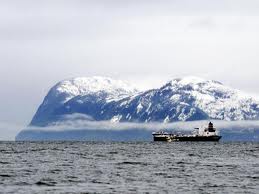
The science behind energy has always been progressing. hat started out as campfires has turned into nuclear reactions and laser shots. We’ve gone from wood to whole oil. Whale oil to kerosene. Kerosene to coal and gas. Mix in some windmills and solar panels, we’ve come a long way.
Each new advancement seems to come to as the matrix of inputs, and outputs, change. We have oil today because we were running out of whales yesterday a delicious fact of life to present to your favorite neighborhood environmentalist]. We’ve gone from totally dependent on fossil fuels to nuclear options. And today we’re taking advantage of natural gas through fracking procedures.
We change and adapt for several reasons. Sometimes it’s because we develop technology. We gave up on whales because the technology of oil extraction produced more value through oil than did hunting whales. We’re able to tap into reserves of oil previously unreachable through new technologies and due to a changing demand for oil; the price of oil now makes new drilling economically sound. And sometimes we have impacts to the environment that cause us to change. As we throw soot into the air from our coal plants we discover that those effects are undesirable. So we try to clean the exhaust. That cleaning adds costs and those costs drive new technology.
And all of that, if done correctly, is a good thing. It’s when the dogma surrounding the “Ought” get’s in the way when things go off track.
We forget to track the value.
Is burning the coal and sending the pollution into the air worth the benefit? Is mining the coal and hurting/killing the miners worth the benefit? Is the risk of a meltdown in a reactor worth the energy. is it worth the cleaner energy that coal provides? The comparisons can go on and on.
folks aren’t being honest if they don’t acknowledge that there are downsides to today’s energy. And others aren’t being honest if they don’t acknowledge the benefits we enjoy due to that energy. If reducing coal emissions meant a slow down in medical research, would that be worth it? if we reduced the deep sea drilling and added to the cost of crude oil, would the economic impacts of higher cost of energy be worth it?
No one should deny that drilling, deep sea or shallow land, doesn’t impact the environment. However, there shouldn’t be any doubt to the benefits that drilling provides either.
All this brings me to fracking. This form of energy extraction isn’t any different than the ones we’ve already discussed. There are puts and there are takes. The rub comes in the value. And this is where I think today’s ‘Green Energy” folks are getting it wrong.
I get that wind and solar are easier on mother Earth. But they don’t have the economic ability to make themselves viable. The benefit ain’t worth the downside; dramatically more expensive power. And those same “Green Energy” folk’s hatred of fracking follows the same blindness to the value proposition that they exhibit in solar and wind.
Fracking gives us access to substantially cheaper gas than we’ve had in the past. AND we have massive amounts of it. Are there downsides? Sure. But they may not be as bad as they say:
PITTSBURGH — In the debate over natural gas drilling, the companies are often the ones accused of twisting the facts. But scientists say opponents sometimes mislead the public, too.
Critics of fracking often raise alarms about groundwater pollution, air pollution, and cancer risks, and there are still many uncertainties. But some of the claims have little — or nothing— to back them.
Examples?
…reports that breast cancer rates rose in a region with heavy gas drilling are false, researchers told The Associated Press.
Fears that natural radioactivity in drilling waste could contaminate drinking water aren’t being confirmed by monitoring, either.
And concerns about air pollution from the industry often don’t acknowledge that natural gas is a far cleaner burning fuel than coal.
Ironically, the same groups that accuse the right of ignoring the science of global warming*, are the same folks who might be ignoring science themselves.
“The debate is becoming very emotional. And basically not using science” on either side, said Avner Vengosh, a Duke University professor studying groundwater contamination who has been praised and criticized by both sides.
More on the science:
Opponents of fracking say breast cancer rates have spiked exactly where intensive drilling is taking place — and nowhere else in the state. The claim is used in a letter that was sent to New York’s Gov. Andrew Cuomo by environmental groups and by Josh Fox, the Oscar-nominated director of “Gasland,” a film that criticizes the industry. Fox, who lives in Brooklyn, has a new short film called “The Sky is Pink.”
But researchers haven’t seen a spike in breast cancer rates in the area, said Simon Craddock Lee, a professor of medical anthropology at the University of Texas Southwestern Medical Center in Dallas.
David Risser, an epidemiologist with the Texas Cancer Registry, said in an email that researchers checked state health data and found no evidence of an increase in the counties where the spike supposedly occurred.
And Susan G. Komen for the Cure, a major cancer advocacy group based in Dallas, said it sees no evidence of a spike, either.
“We don’t,” said Chandini Portteus, Komen’s vice president of research, adding that they sympathize with people’s fears and concerns, but “what we do know is a little bit, and what we don’t know is a lot” about breast cancer and the environment.
And back to the radioactive water:
Another instance where fears haven’t been confirmed by science is the concern that radioactivity in drilling fluids could threaten drinking water supplies.
Critics of fracking note the deep underground water that comes up along with gas has high levels of natural radioactivity. Since much of that water, called flowback, was once being discharged into municipal sewage treatment plants and then rivers in Pennsylvania, there was concern about public water supplies.
But in western Pennsylvania, the Pittsburgh Water and Sewer Authority did extensive tests and didn’t find a problem in area rivers. State environmental officials said monitoring at public water supply intakes across the state showed non-detectable levels of radiation, and the two cases that showed anything were at background levels.
And finally the irony:
Critics of fracking also repeat claims of extreme air pollution threats, even as evidence mounts that the natural gas boom is in some ways contributing to cleaner air.
Marcellus air pollution “will cause a massive public health crisis,” claims a section of the Marcellus Shale Protest website.
Yet data from the U.S. Energy Information Administration show that the shale gas boom is helping to turn many large power plants away from coal, which emits far more pollution. And the U.S. Environmental Protection Agency passed new rules to force drillers to limit releases of methane from wells and pumping stations.
Some environmental groups now say that natural gas is having a positive effect on air quality.
Earlier this year, the group PennFuture said gas is a much cleaner burning fuel, and it called gas-fired power plants “orders of magnitude cleaner” than coal plants.
Does burning gas impact air quality and the environment around it? Sure. To a degree. But is it worth it? Is it worth burning gas in order to bring to our doorsteps life saving medications, educational advancements, new advancements in cancer research? Also, sure.
We need to watch and make sure that we’re taking care to increase our value. We don’t kill whales for whale oil just because there’s whale oil in the ocean. And maybe one day, when we can more effectively split the atom, we’ll stop drilling for oil. But until then, please, run through the value proposition.
*It’s important to point out that there is a difference in accepting man made warming and accepting catastrophic global climate change. And much of the emotional back and forth in this debates comes from ignoring this fact.









